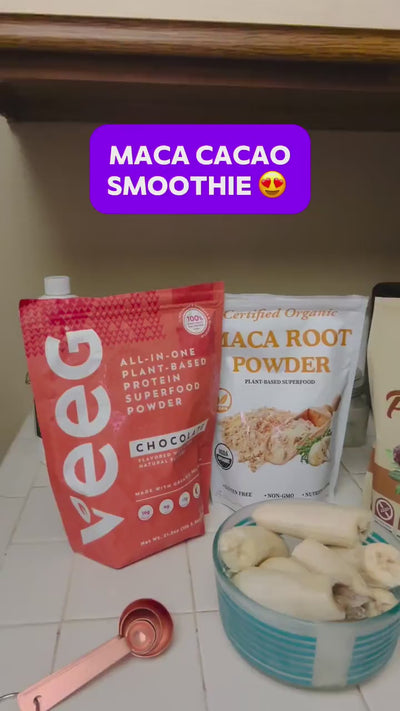VANILLA ALL-IN-ONE SUPERFOOD POWDER
VANILLA ALL-IN-ONE SUPERFOOD POWDER
Our legendary protein superfood powder, is packed with superior, nutrient-dense ingredients to fuel and elevate your health with every scoop.
THIS IS THE GOOD STUFF!
Couldn't load pickup availability
PRODUCT BENEFITS

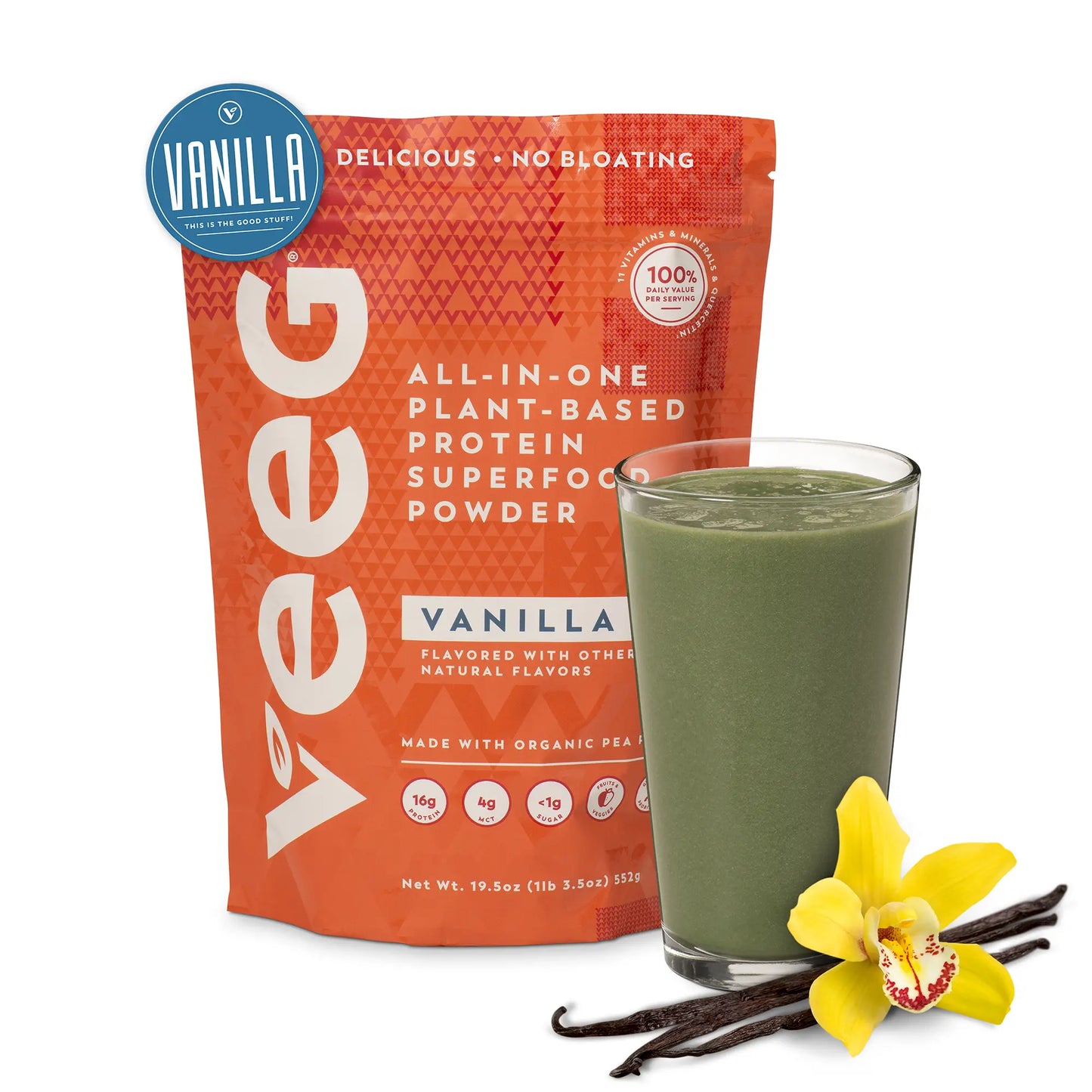
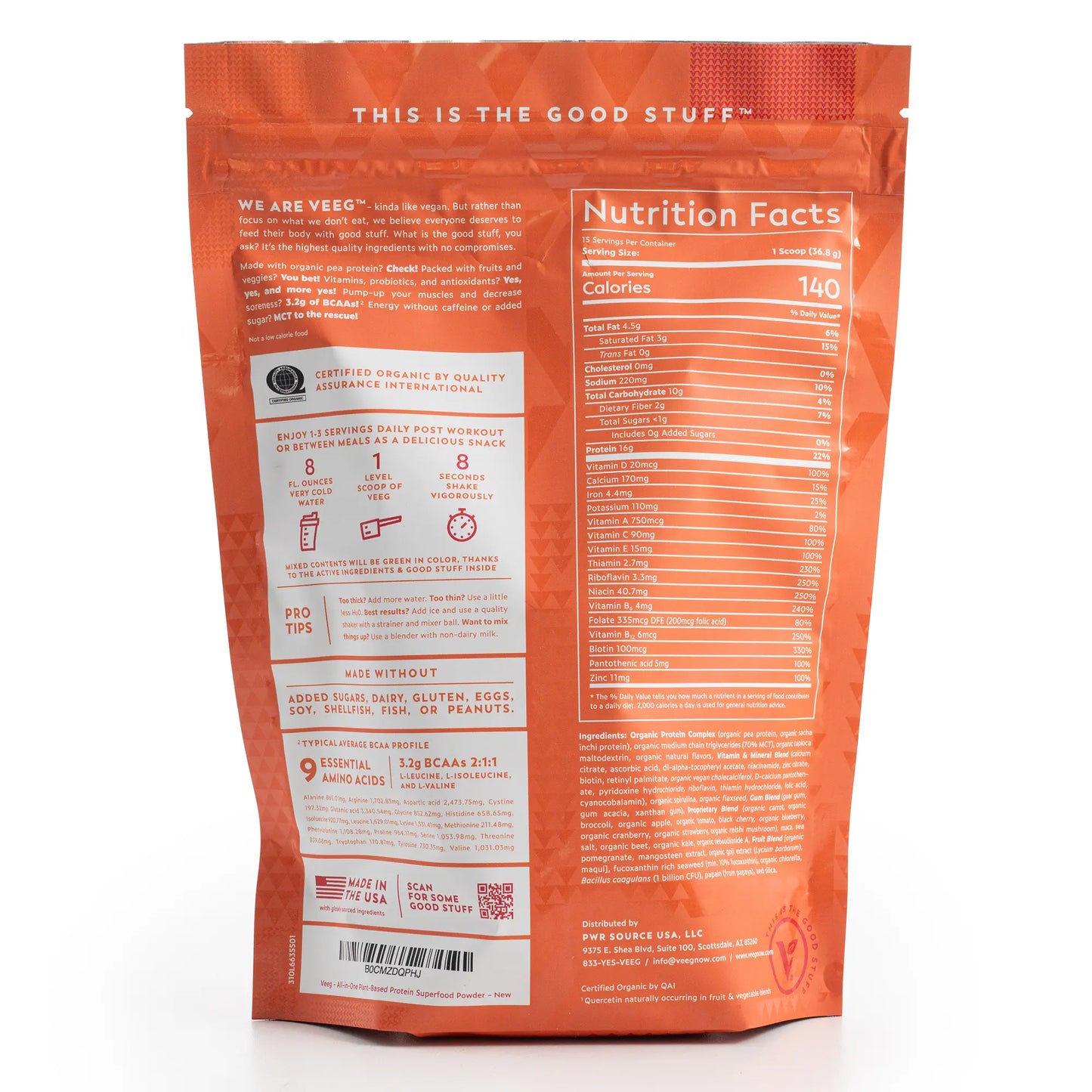
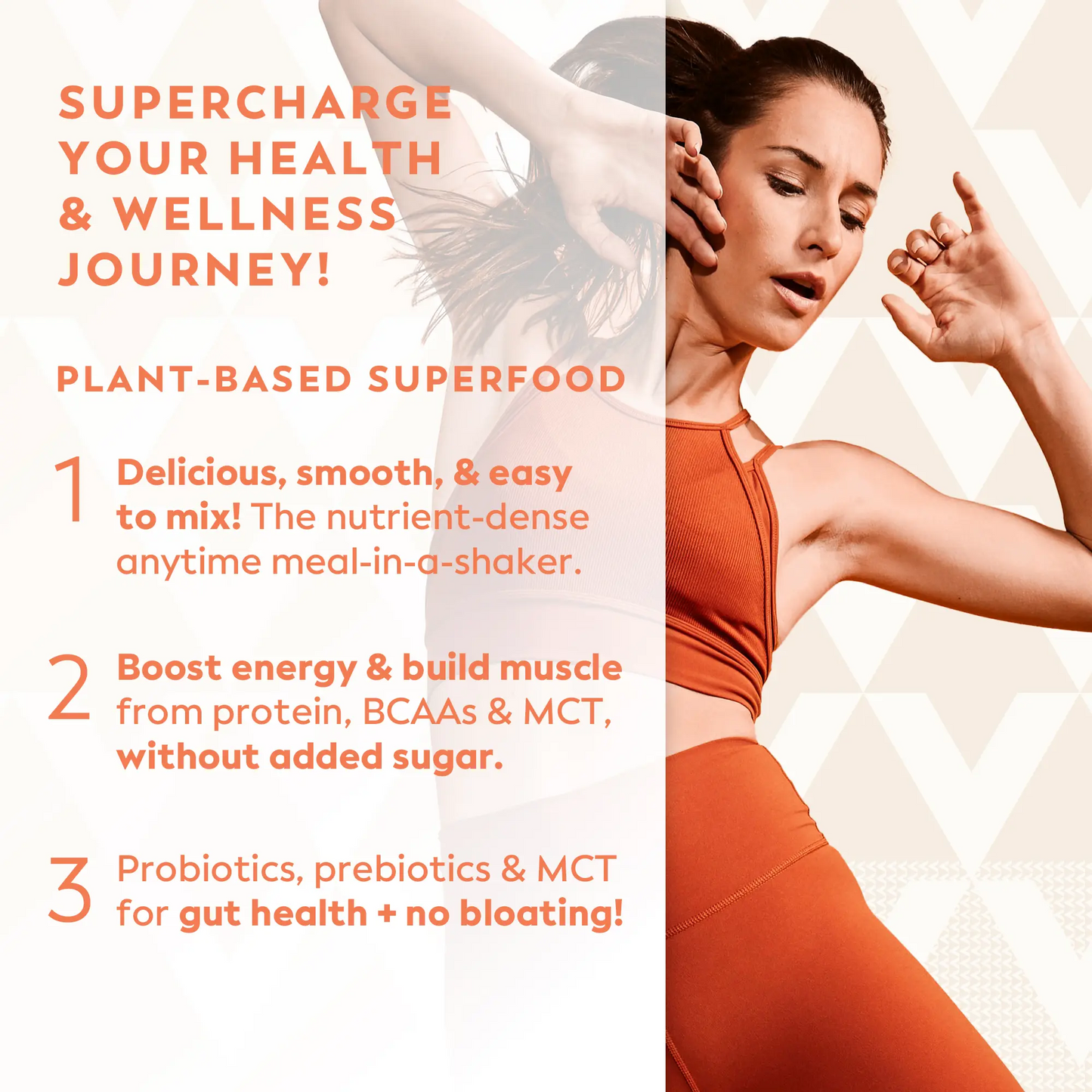
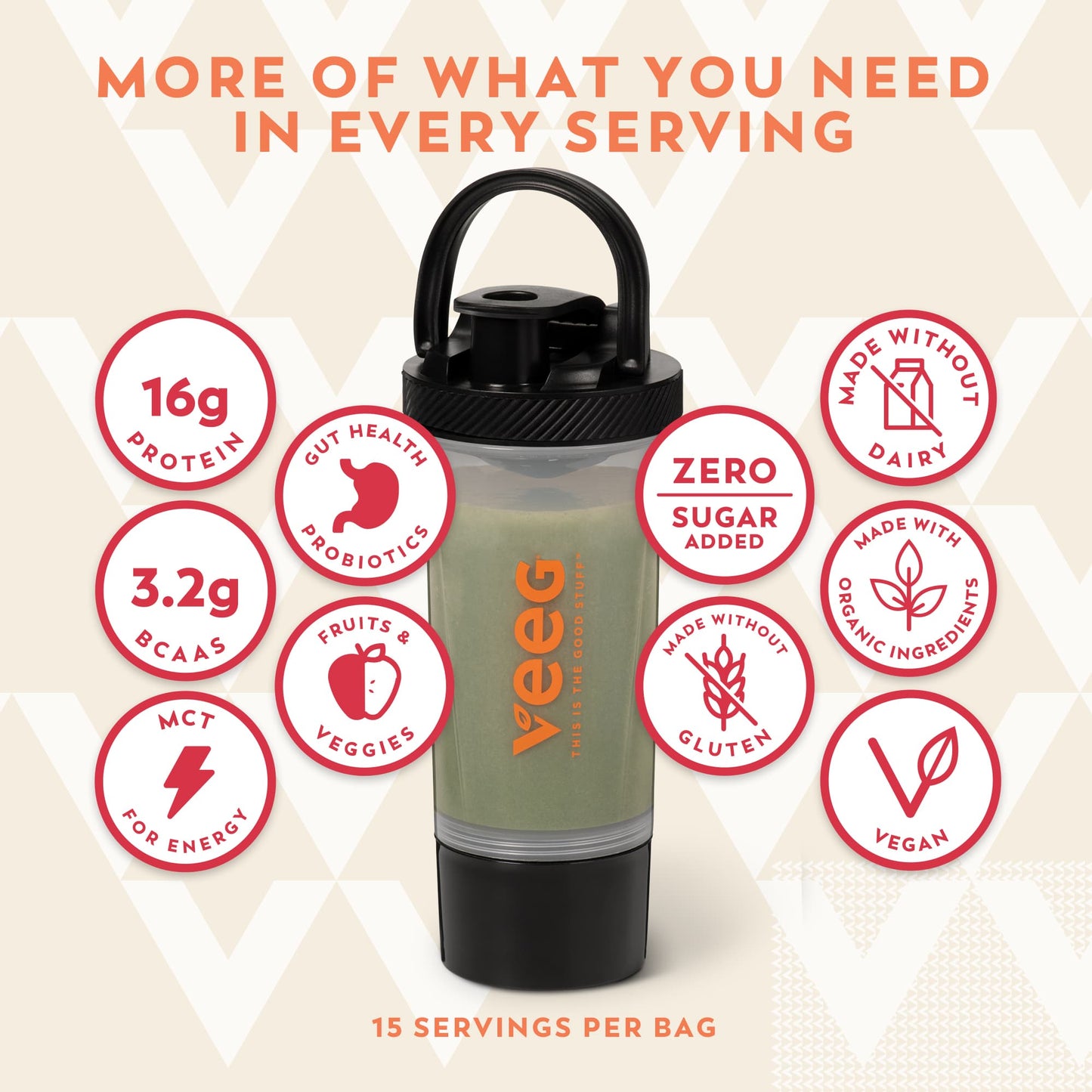
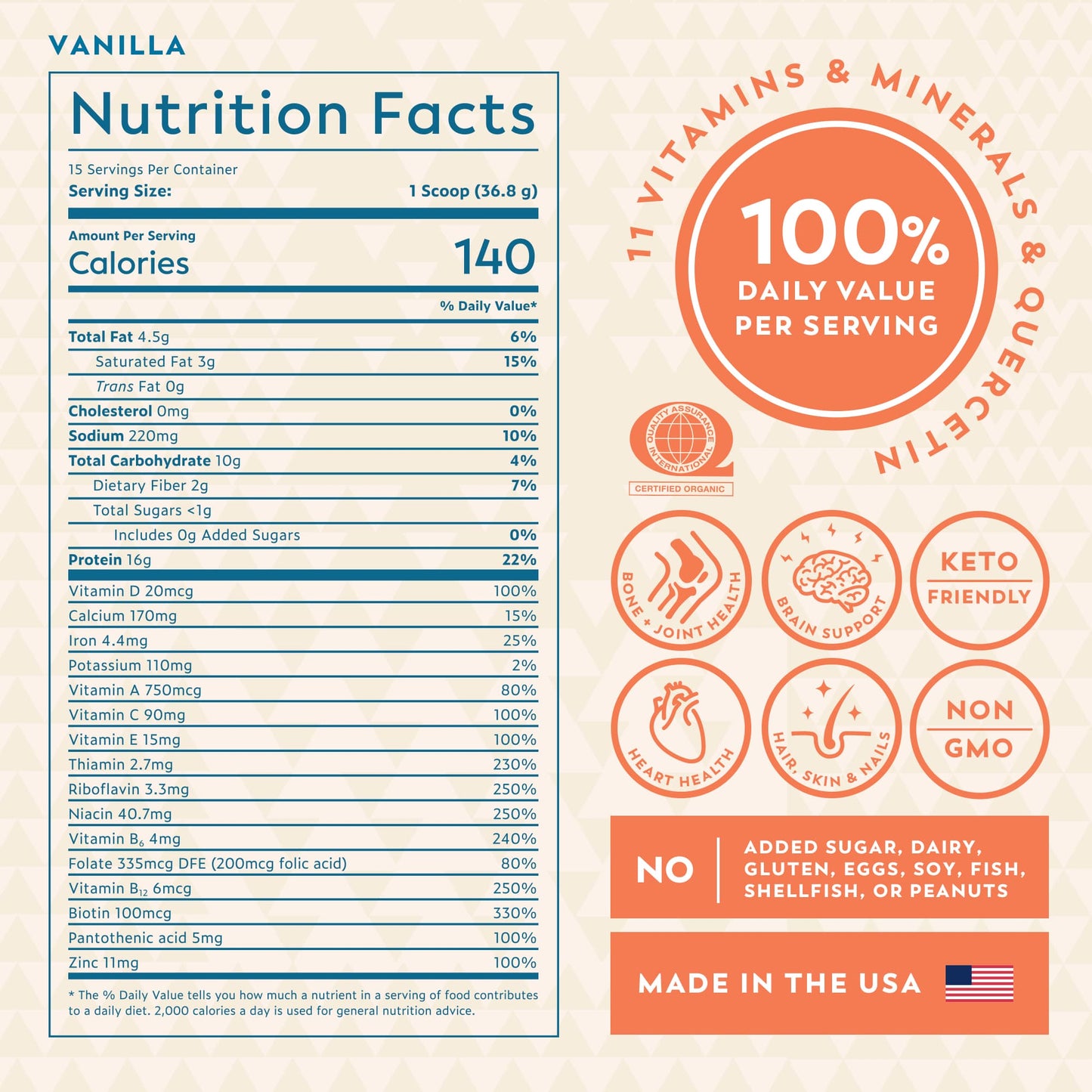
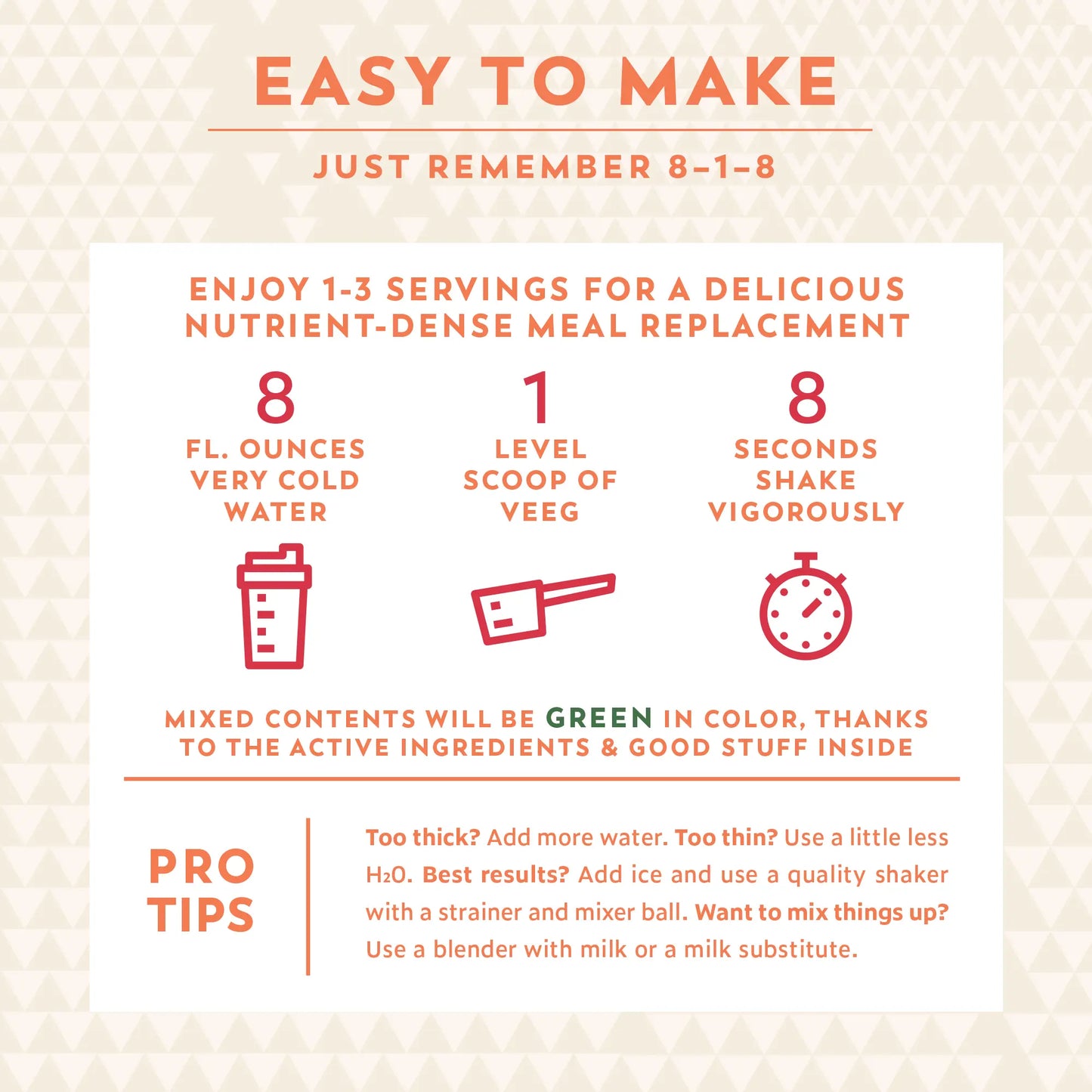
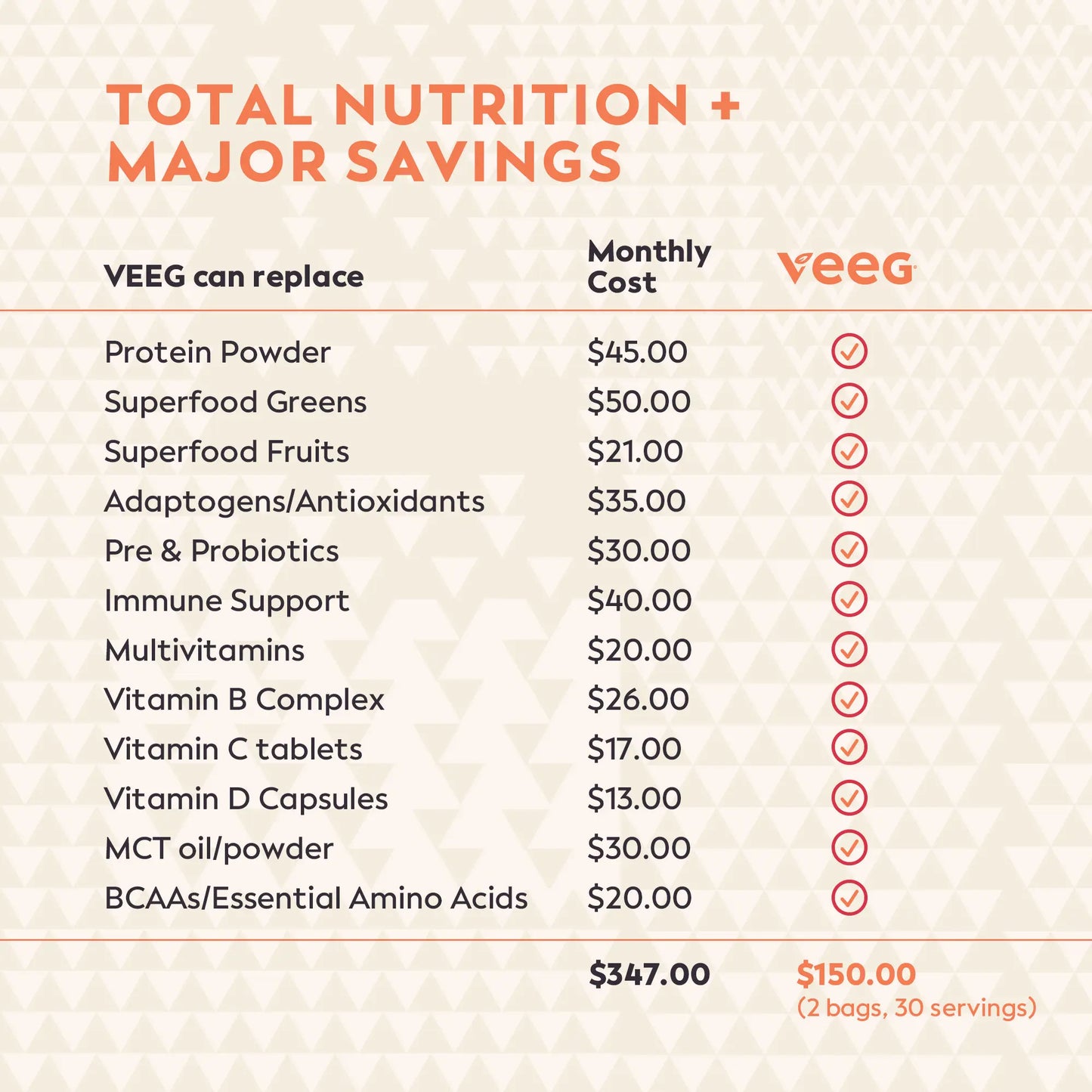
PROTEINS
Organic Pea Protein
What is it?
Pea protein is derived from – you guessed it – peas, specifically yellow peas. Peas are sustainably sourced, dried, and ground with little processing, leaving vitamin and mineral content intact.
Why It’s the Good Stuff
Not only is organic pea protein free from top allergens like gluten and dairy, but this naturally vegan protein also contains nine essential amino acids and key branched-chain amino acids like l-arginine. With a smooth texture and slow digestibility, pea protein is not only delicious, but it also helps you feel fuller longer. Its wide range of health benefits includes increased muscle strength and heart health support.
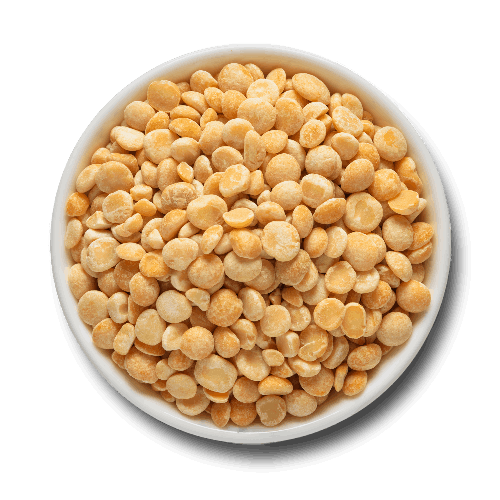
Organic Sacha Inchi Protein
What is it?
Sachi Inchi is a star-shaped plant that grows in the Amazon rainforest in Peru. The nut protein is extracted from the plant’s seeds and has been used for thousands of years by the region’s indigenous tribes. Packed with protein and rich in omega-3s, omega-6s, and antioxidants, the sustainably sourced seeds boast numerous superfood benefits.
Why It’s the Good Stuff
Organic Sachi Inchi protein has been shown to reduce excess abdominal fat and promote weight loss. It also benefits mood health, promotes healthy cholesterol and blood sugar levels, and supports heart and cognitive health. Its antioxidant properties even help improve your skin’s appearance.
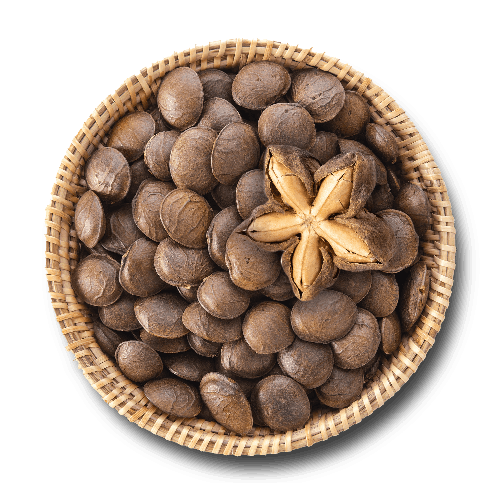
FRUITS & VEGGIES
Organic Broccoli
What is it?
Organic broccoli is a nutrient-rich vegetable that belongs to the cruciferous family, known for its green florets and stalks. Broccoli is loaded with phytonutrients and is commonly recognized as a powerful superfood.
Why It’s the Good Stuff
Rich in phytonutrients including sulforaphane, glucosinolates, carotenoids, flavonoids as well as antioxidants, vitamins, and minerals. Broccoli supports a wide range of health functions, including heart health, eye health, hormone balance, immune support, hair and skin health, bone and teeth health, organ detoxification and stomach health. It is also a reliable source of vitamin K, vitamin C, chromium, folic acid, and dietary fiber.
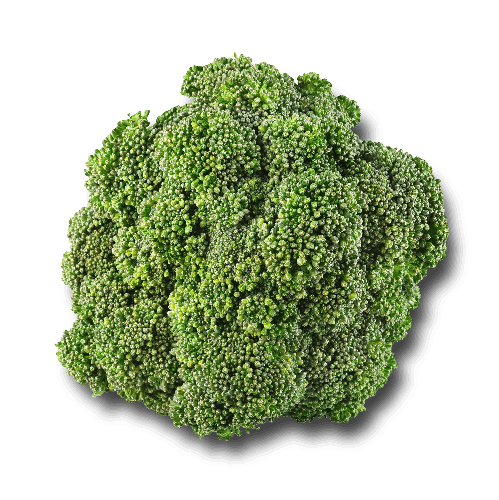
Organic Apple
What is it?
Apples are a popular fruit known for their crisp texture and sweet to tart flavor, belonging to the species Malus domestica. Apples are packed with various phytonutrients, antioxidants, dietary fiber, potassium, flavonoids, polyphenols, and a range of essential vitamins, including vitamin C, vitamin B, calcium, iron, copper, phosphorus, and magnesium.
Why It’s the Good Stuff
Aptly described as “nutritional powerhouses,” apples are great for cardiac and cognitive function. They also have great prebiotic qualities, supporting digestion due to their high content of fiber, particularly pectin, a type of soluble fiber. Prebiotics are non-digestible compounds that feed and promote the growth of beneficial gut bacteria. Apples support gut health, improve digestion, strengthen the gut microbiome, and help you feel full.
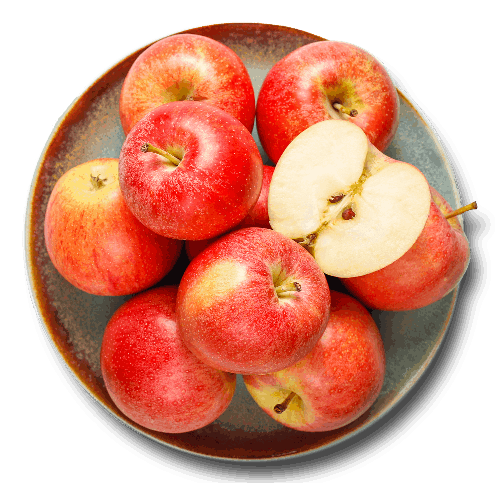
Organic Tomato
What is it?
Tomato or To-mah-to? These organic superfoods are nutrient-dense, rich in phytonutrients & antioxidants.
Why It’s the Good Stuff
Tomatoes, especially organic ones, are rich in vitamin C and a powerful antioxidant called lycopene, which supports heart health. They are also great sources of potassium, iron, folate, and vitamin K and support healthy vision, digestion, blood sugar, and skin and hair.
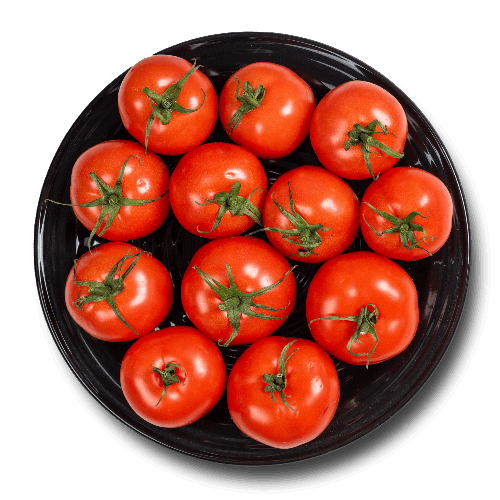
Black Cherry
What is it?
Black cherry, also known as wild cherry, originates in North America. It is typically smaller and has a deeper mahogany color, and it tends to be sweeter and softer.
Why It’s the Good Stuff
Black cherry is high in vitamin C and a phytonutrient called anthocyanins, antioxidant-rich compounds that help reduce oxidative stress and free radicals. It’s known for reducing inflammation and supporting joint health. Black cherry also aids in muscle recovery, supports heart health, and prevents the signs of aging. It is also packed with melatonin to support sleep.
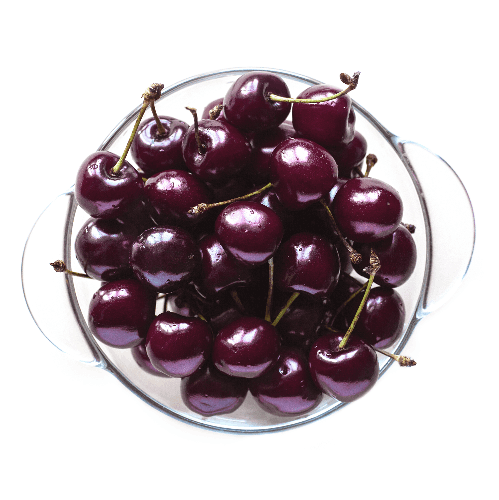
Organic Carrot
What is it?
This root vegetable is a member of the parsley family. Carrots are commonly orange, but they can also be white, purple, black, red, or yellow. They have a crunchy texture and are high in key nutrients.
Why It’s the Good Stuff
Carrots are a major source of vitamin A from the phytonutrient beta-carotene, known for its antioxidant effects and eye health and vision benefits. Carrots also contain biotin, potassium, vitamin C, vitamin K, and calcium, supporting everything from improved mood, cognition, and sleep to healthy digestion, immune response, blood sugar levels, and skin health.
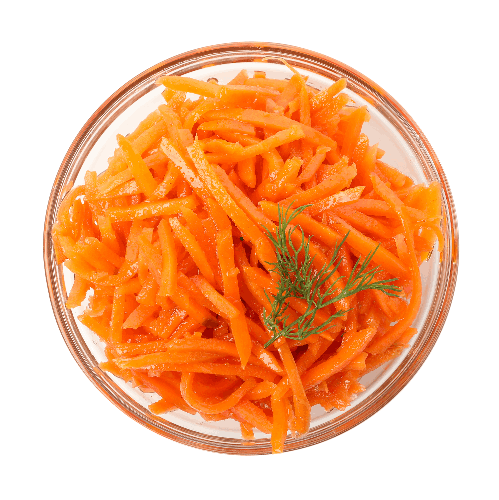
Organic Blueberry
What is it?
This little blue fruit is packed with powerful health benefits and is among the foods with the highest antioxidant and phytonutrient content. Native to North America, these superfoods have been around for thousands of years and were used by Native Americans for their numerous health properties.
Why It’s the Good Stuff
Blueberries have an almost endless array of benefits, including support for heart health, cholesterol, blood pressure and blood sugar, cognitive health, weight loss, bone health, skin health, and mood. They are a rich source of the phytonutrient anthocyanin with its antioxidant properties as well as vitamin C, K, B6, potassium, copper, and manganese and have also been shown to reduce signs of aging.
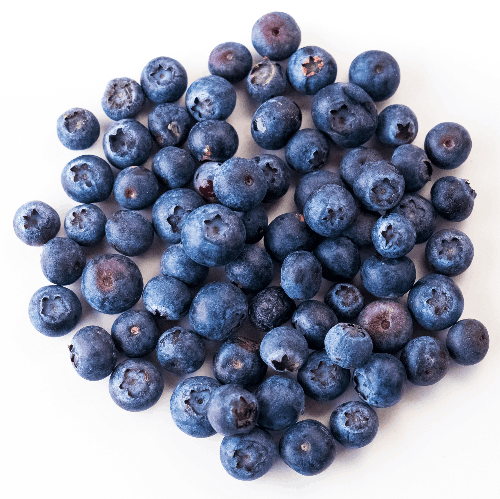
Organic Cranberry
What is it?
Cranberries are small reddish fruits that grow on evergreen shrubs and have been used medicinally by native peoples for centuries. These small, but powerful superfoods are usually enjoyed as sauce, juice, or whole, and offer a variety of benefits.
Why It’s the Good Stuff
Cranberries are packed with phytonutrients as well as flavonoids. These compounds that include proanthocyanidins, polyphenols, and quercetin offer great antioxidant and antimicrobial benefits, which contribute to their ability to promote oral, gastrointestinal, and urinary health. Cranberries are also a useful source of several vitamins like Vitamin C and minerals, & they support cardiovascular health & healthy blood sugar levels.
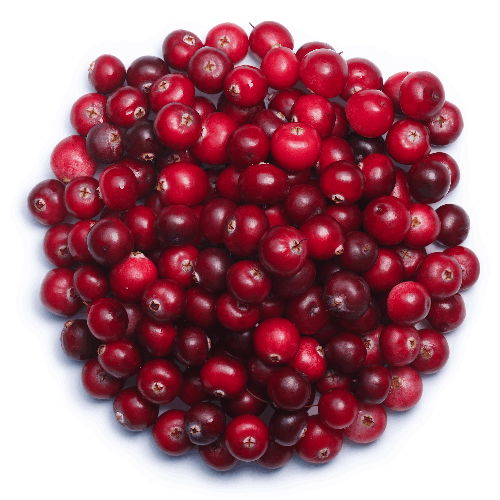
Organic Strawberry
What is it?
These sweet red beauties are soft and juicy and offer a wide range of benefits for overall health.
Why It’s the Good Stuff
Strawberries are phytonutrient-rich and packed with antioxidants. They contain compounds like anthocyanins, ellagic acid, and quercetin that support a healthy heart, immune system, and good cholesterol, reduce inflammation, and lower blood pressure. With an abundance of vitamins, polyphenols, fiber, and antitoxins, they also aid in digestive, bone, and joint health and encourage healthy vision and skin.
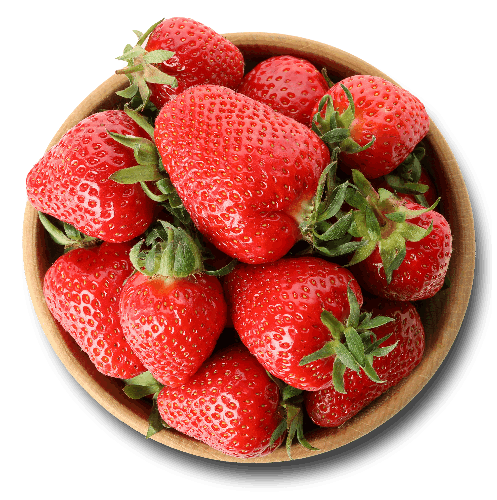
Organic Reishi Mushroom
What is it?
Reishi are dark mushrooms with a shiny, woody texture. For over 2,000 years, they have been used in Asian traditional medicine to support health and longevity.
Why It’s the Good Stuff
These large mushrooms are powerful stress adaptogens with phytonutrient and antioxidant properties. They help reduce inflammation and promote detoxification as it stimulates the immune system, fights infection, and promotes liver function. Reishi mushrooms may also improve cognitive, brain, mental and respiratory function, support healthy blood pressure, boost energy, and even have anti-aging properties while also aiding in stress relief.
Organic Beet
What is it?
Beetroots, often referred to as beets, are root vegetables with an earthy flavor and aroma recognized for their colorful, bulb shape. They are used widely today for their impressive nutritional benefits.
Why It’s the Good Stuff
Beets contain several phytonutrient compounds and betalains, including betacyanin, that contribute to their health benefits and support overall well-being. They are loaded with B & C vitamins, fiber, and minerals. They are also rich in nitrates, which helps regulate blood pressure, improve athletic performance, and promote cognitive function. Among their many benefits, beets help maintain blood sugar and a healthy weight, as well as healthy cholesterol and triglyceride levels.
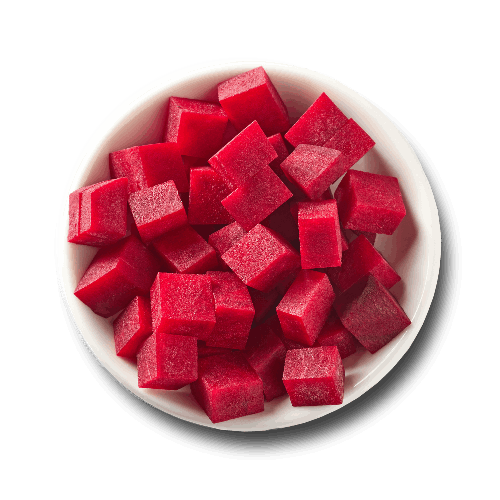
Organic Kale
What is it?
Kale is a green, leafy, vegetable in the same family as cabbage and broccoli. Kale is a superfood rich in phytonutrients and antioxidants. It has many key health benefits.
Why It’s the Good Stuff
Kale is rich in antioxidants such as vitamin C, beta-carotene, flavonoids like quercetin and kaempferol, and chlorophyll, all of which help combat oxidative stress, neutralize free radicals, and promote detoxification. Additionally, it contains phytonutrients like glucosinolates and lutein, which support eye health, reduce inflammation, and offer potential cancer-fighting properties. Kale is an excellent source of several essential vitamins and minerals, including elevated levels of vitamin K along with vitamin A, C, copper, and manganese. It is also a reliable source of numerous other nutrients, such as potassium, calcium, iron, dietary fiber, vitamin B6, omega-3 fatty acids, magnesium, thiamin, niacin, folate, and phosphorus. Kale’s antioxidant power boosts skin and hair health, improves digestion, supports heart health, promotes weight loss, helps manage blood sugar, and more. The chlorophyll in kale turns protein mixtures green, whether in water or during cooking, by dissolving or binding to proteins and reflecting green light due to its natural pigment. This process not only changes the color but can also enhance antioxidant properties in food, potentially offering health benefits like reducing oxidative stress.
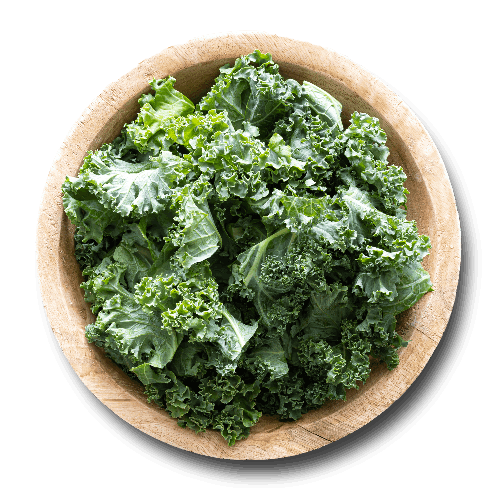
Maca
What is it?
Maca is a root vegetable native to the Andes Mountains in Peru. Often referred to as "Peruvian ginseng," maca is phytonutrient rich, contains vitamins, minerals & amino acids. It is also considered a powerful adaptogen with numerous health benefits.
Why It ’ s the Good Stuff
Maca is often used to boost energy, improve mood, enhance libido, manage stress & maintain balance, and support overall well-being.
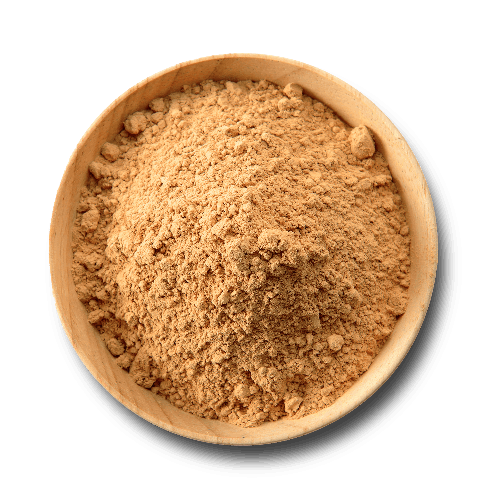
Organic Pomegranate
What is it?
A pomegranate is a round, red fruit with a tough outer skin and filled with juicy seeds called arils. Known for its rich antioxidant content, it's a nutritious and delicious fruit used in a variety of dishes and beverages.
Why It ’ s the Good Stuff
Pomegranates are packed with phytonutrients with powerful antioxidants, particularly punicalagins, which help protect cells from damage and reduce inflammation. Key benefits include promoting heart health by lowering blood pressure and cholesterol, aiding in digestion with fiber content, and offering potential anti-cancer properties. Additionally, they improve skin health, support memory, and may reduce joint pain due to their anti-inflammatory effects.
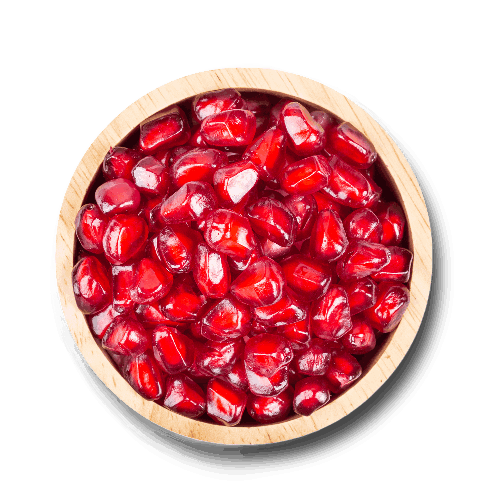
Mangosteen Extract
What is it?
Mangosteen extract is a concentrated form of the mangosteen fruit, known for its rich antioxidant content, particularly xanthones.
Why It’s the Good Stuff
Mangosteen extract offers antioxidant and anti-inflammatory benefits, which may help protect cells from damage and reduce inflammation. It is also believed to support immune health, improve skin appearance, and promote healthy digestion.
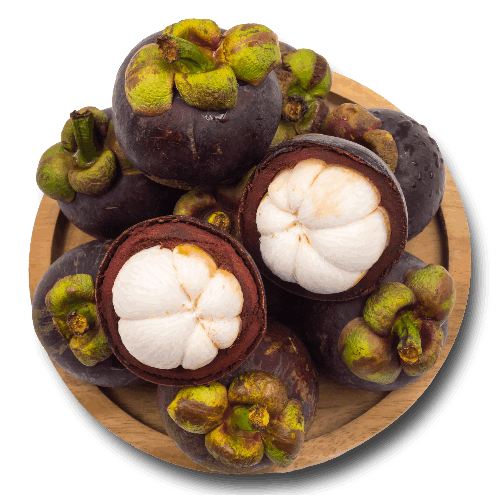
Organic Goji Berry Extract
What is it?
Goji berries are small, red-orange fruits native to Asia, known for their high nutrient and antioxidant content. Often called a "superfood," they are used in traditional medicine and are believed to support immune health, eye health, and overall well-being.
Why It’s the Good Stuff
Goji berries are rich in antioxidants, vitamins, and minerals that help protect cells and support overall health. Their key benefits include boosting the immune system, promoting healthy skin, and improving eye health due to their prominent levels of vitamin C and beta-carotene.
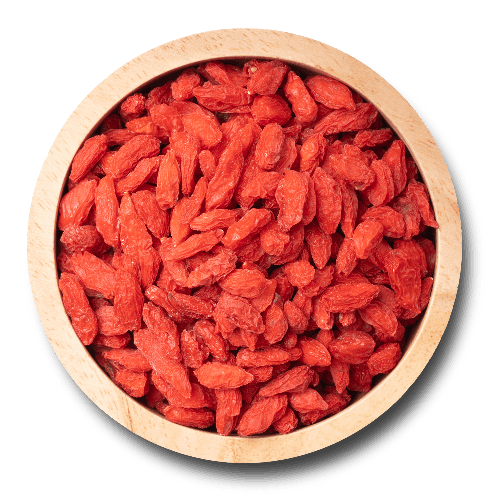
Maqui Berry
What is it?
Maqui berries are small, dark purple berries native to South America, particularly in the Patagonia region, and are known for their exceptionally high antioxidant content.
Why It’s the Good Stuff
Macqui berries are one of the richest natural sources of phytonutrients and antioxidants, particularly anthocyanins, which help protect cells from oxidative stress. Their key benefits include reducing inflammation, supporting heart health, and promoting healthy skin and eyes.
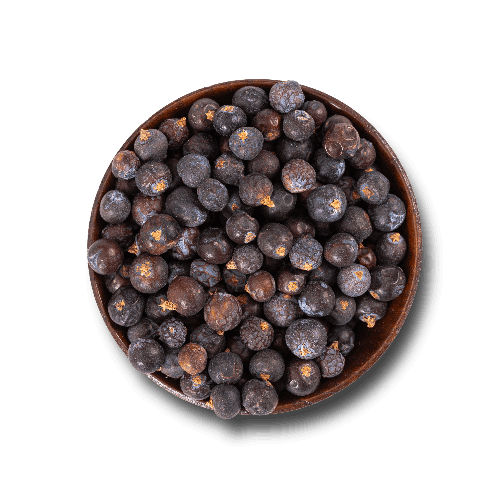
VITAMINS & MINERALS
Vitamin A
What is it?
Vitamin A (retinyl palmitate) is a fat-soluble vitamin that occurs naturally in green leafy vegetables. There are two types of vitamin A, preformed and provitamin A, both of which are important to incorporate in our diets.
Why It’s the Good Stuff
Vitamin A provides a variety of health benefits. Among the most notable is its positive impact on eye and vision health. This essential vitamin also boosts immune and reproductive health, supports growth and development, and helps the body’s organs function properly.
Vitamin C
What is it?
Vitamin C (L-ascorbic acid) is a water-soluble vitamin required for our bodies to synthesize important enzymes, nutrients, and neurotransmitters and metabolize proteins. It is found in abundance in many fruits & vegetables.
Why It’s the Good Stuff
Vitamin C is an important antioxidant that helps limit the damage caused by free radicals, which supports proper immune function, wound healing, and healthy bones, cartilage, teeth, and skin. This essential vitamin boosts the immune system by supporting white blood cell function and helps protect cells from oxidative stress. It also aids in collagen production, promoting healthy skin, wound healing, and the maintenance of cartilage, bones, and teeth.
Vitamin D3
What is it?
Vitamin D3 (organic vegan cholecalciferol) is commonly known as the vitamin we get from the sun. The body’s ability to absorb it through sunlight classifies vitamin D as a prohormone. This fat-soluble vitamin is sourced from lichen making it a suitable option for vegans, vegetarians or those who enjoy a plant-based diet.
Why It’s the Good Stuff
Vitamin D3 helps the body absorb calcium and phosphate, promoting strong bones, teeth & muscles. It enhances neuromuscular function, immune function, cognitive health, and glucose metabolism. It also supports mood health and can even help enhance weight loss and manage blood sugar.
Vitamin E
What is it?
Vitamin E (dl-alpha tocopherol acetate) refers to a group of fat-soluble compounds that possess antioxidant properties and skin benefits.
Why It’s the Good Stuff
Antioxidant-rich vitamin E helps protect cells from damage caused by free radicals. Vitamin E supports immune health and key metabolic processes, prevents premature skin aging by improving elasticity, and supports cognitive and heart health.
Thiamin
What is it?
Thiamin (vitamin B1) is a water-soluble vitamin important for cell growth and function. It assists the body in breaking down nutrients and converting them into energy and normalizes cell function.
Why It’s the Good Stuff
Thiamin supports vital organs, including the brain, heart, liver, kidneys, stomach, and intestines, and promotes key functions such as nervous system support and cognitive development. This essential nutrient also enhances the appearance of skin and supports vision health. It assists energy production by helping the body convert carbohydrates into usable energy.
Riboflavin
What is it?
Riboflavin (vitamin B2) is a primary component of coenzymes involved in several vital body processes. It is a water-soluble vitamin that is part of the B-complex group. It plays a key role in various cellular processes.
Why It’s the Good Stuff
Riboflavin produces energy and promotes cellular function. It also plays a key role in the body’s ability to metabolize fats, carbohydrates & proteins. It is a required component for skin, digestive tract, blood cell, and cognitive development. It also plays a crucial role in maintaining eye and nerve function, while acting as an antioxidant to protect cells from damage.
Niacin
What is it?
Niacin (vitamin B3 or niacinamide) is a water-soluble vitamin that helps your body convert food into energy. It acts as a coenzyme, partnering with over 400 other enzymes to support various body functions.
Why It’s the Good Stuff
Niacin helps promote the growth and development of reproductive organs and body tissues like skin, eyes, nerves, and connective tissue. This important vitamin helps convert nutrients into energy, maintains cholesterol levels, and improves blood circulation.
Pantothenic Acid
What is it?
Pantothenic acid (vitamin B5 or d-calcium pantothenate) is a water-soluble vitamin that is part of the B-complex group. It is essential for synthesizing coenzyme A, which is crucial for numerous biochemical reactions in the body.
Why I t ’ s the Good Stuff
Pantothenic acid helps the body convert carbohydrates, proteins, and fats into energy, supporting overall metabolic function. It also plays a role in synthesizing hormones and maintaining healthy skin, hair, and nervous system function.
Vitamin B6
What is it?
Vitamin B6 (pyridoxine hydrochloride) is a water-soluble vitamin that plays a significant role in synthesizing nutrients and is heavily involved in the body’s metabolism.
Why It’s the Good Stuff
Vitamin B6 is essential to cell and blood glucose health as well as nervous and immune system function. Our bodies require vitamin B6 to convert food into energy and ensure proper nerve function. It supports brain development and function by aiding in the production of neurotransmitters like serotonin and dopamine. It also helps regulate homocysteine levels, which is important for heart health & reducing the risk of cardiovascular disease.
Biotin
What is it?
Biotin (vitamin B7) is a water-soluble vitamin that assists in breaking down macronutrients like fats, carbohydrates, and protein. It plays a vital role in regulating cell growth & various metabolic processes.
Why It’s the Good Stuff
Biotin supports healthy hair, skin, and nails, often promoted for its role in enhancing their strength and appearance. It also aids in the metabolism of macronutrients, helping the body convert food into energy more efficiently. It promotes pregnancy health, supports brain function, and helps maintain healthy liver function.
Folate
What is it?
Folate (vitamin B9 or folic acid) is a water-soluble vitamin that helps create DNA and RNA. It plays a key role in cell division, and is especially important during periods of rapid growth, such as pregnancy.
Why It’s the Good Stuff
Folate has a range of benefits, including supporting cardiovascular and cognitive function, boosting mood, and promoting liver and kidney health. It plays a crucial role in the production and maintenance of new cells, making it vital for tissue growth and repair. Folate can also benefit fertility, pregnancy, and fetal development.
Vitamin B12
What is it?
Vitamin B12 (cyanocobalamin) is a water-soluble vitamin that helps produce DNA and performs other essential functions in the body.
Why It’s the Good Stuff
Vitamin B12 is essential to produce red blood cells. It also supports nerve function, DNA synthesis, and overall brain health, and plays a critical role in energy metabolism. It aids in the synthesis of neurotransmitters, which are crucial for mood regulation and cognitive function. It also helps maintain healthy skin and hair. Additionally, it can enhance the effectiveness of folate, working together to promote proper cell division and function.
Calcium
What is it?
Calcium (calcium citrate) is an essential mineral that is primarily found in bones and teeth, providing structure and strength. It plays a key role in several physiological processes in the body.
Why It’s the Good Stuff
Calcium is important for bone health. It supports strong bones, teeth, and muscles, especially when taken with vitamin D. Calcium also helps the body maintain healthy blood pressure and blood sugar levels. It has even been shown to benefit pregnancy health and help regulate hormones.
Iron
What is it?
Iron is an essential nutrient, one of the most critical minerals in your body. Iron is necessary for growth and development and is used by the body to make hemoglobin and myoglobin, which carry oxygen throughout the body and to the muscles.
Why It’s the Good Stuff
Iron is known for its range of benefits. This essential mineral helps the body maintain healthy circulation and regulates body temperature. Iron also boosts energy, improves focus and concentration, and supports gut health, immune function, and sleep, .and is important in the synthesis of certain hormones & connective tissues.
Zinc
What is it?
Zinc (zinc citrate) is a trace mineral vital for key body functions like cell growth. It is essential for various biological functions in the body, including immune response and DNA synthesis.
Why It’s the Good Stuff
Zinc is an important mineral for immune health. It helps the body ward off bacteria & viruses, illnesses, and heal wounds. It also supports cell health, metabolism, reproductive health, and our sense of smell and taste. It plays a key role in DNA synthesis, protein production, reproductive health, and our sense of smell & taste.
Sea Salt
What is it?
Sea salt is produced by evaporating seawater. It contains trace minerals and is used as a seasoning in food.
Why It’ s the Good Stuff
Sea salt is a popular seasoning choice for its natural qualities. Its trace minerals can contribute to overall dietary mineral intake.
Silica
What is it?
Silica is derived from natural sources like bamboo or horsetail. It is thought to contribute to collagen synthesis and structural integrity.
Why It ’ s the Good Stuff
Silica may promote healthy skin by supporting collagen production, which can enhance skin elasticity and reduce the appearance of wrinkles. They are also believed to strengthen hair and nails, improve joint health by contributing to connective tissue support, and may aid in bone health by facilitating calcium absorption.
KEY NUTRIENTS
Organic MCT
What is it?
Medium-chain triglycerides (MCTs) are a unique form of fat consisting of medium-chain fatty acids. They are metabolized differently from long-chain fatty acids, as they are easier to digest and are rapidly absorbed. They are transported directly to the liver for quick energy use.
Why It’ s the Good Stuff
MCTs are celebrated for their multifaceted health benefits. They can help you feel fuller longer, boost your energy and focus, improve endurance, foster a healthy gut, support heart health, and even reduce inflammation. A true powerhouse in every scoop!
Organic Spirulina
What is it?
Spirulina is a type of blue-green algae that grows in both fresh and saltwater, known for its high nutritional content. It is often considered a superfood due to its rich profile of protein, vitamins (especially B vitamins), minerals (iron, calcium), omega 3 & 6 fatty acids, and powerful antioxidants like phycocyanin and chlorophyll.
Why it is the Good Stuff
Spirulina is a superfood packed with phytonutrients like chlorophyll and phycocyanin, which provide strong detoxifying and anti-inflammatory properties. It supports immune health, boosts energy, and aids in detoxifying heavy metals and toxins from the body. Additionally, spirulina's high protein content and antioxidant power make it beneficial for muscle recovery. The chlorophyll in spirulina turns protein mixtures green, whether in water or during cooking, by dissolving or binding to proteins and reflecting green light due to its natural pigment. This process not only changes the color but can also enhance antioxidant properties in food, potentially offering health benefits like reducing oxidative stress.
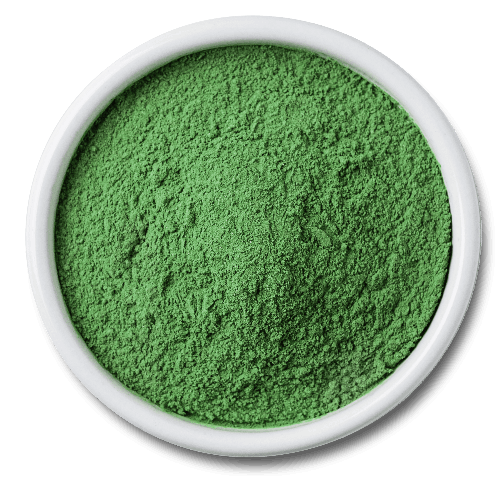
Fucoxanthin - rich Seaweed
What is it?
Fucoxanthin-rich seaweed is a type of brown algae that contains fucoxanthin, a carotenoid pigment responsible for its distinctive color.
Why it is the Good Stuff
Fucoxanthin-rich seaweed is a superfood with a high concentration of fucoxanthin, which may support weight management, metabolic and heart & liver health. It is also packed with phytonutrients and antioxidants that can help reduce inflammation and promote overall wellness.
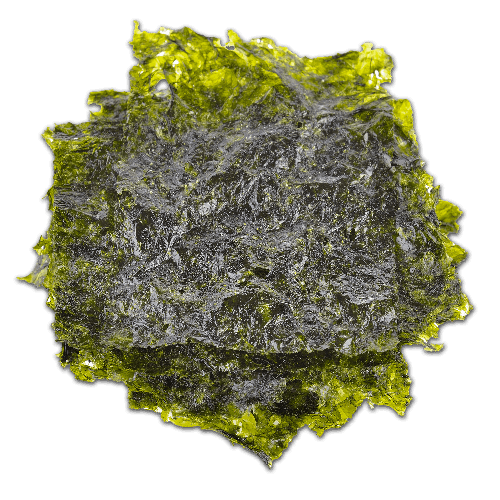
Organic Chlorella
What is it?
Chlorella is a single-celled green algae known for its high phytonutrient content, rich in protein, vitamins, minerals, fatty acids, and chlorophyll.
Why It’s the Good Stuff
Chlorella is a nutrient-dense superfood rich in vitamins, minerals, and antioxidants, supporting overall health. It may aid in detoxification by helping eliminate heavy metals and toxins from the body. Additionally, chlorella has been shown to boost the immune system and promote gut health. The chlorophyll in chlorella turns protein mixtures green, whether in water or during cooking, by dissolving or binding to proteins and reflecting green light due to its natural pigment. This process not only changes the color but can also enhance antioxidant properties in food, potentially offering health benefits like reducing oxidative stress.
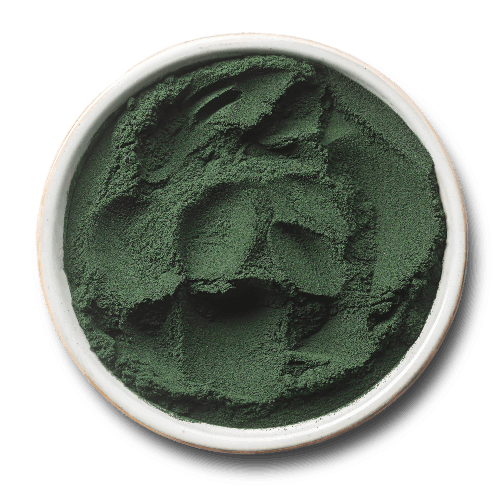
ELECTROLYTES
Sodium
What is it?
Sodium is an essential electrolyte. Despite often getting a bad rep, sodium is needed for vital metabolic processes. This key nutrient works closely with potassium to support fluid balance in the body.
Why It’s the Good Stuff
Sodium is essential for the body to maintain proper fluid and mineral balance. It is also necessary for healthy nerve and muscle function, helps maintain healthy blood pressure levels, and supports heart health.
Potassium
What is it?
Potassium is an important electrolyte needed by all the body’s tissues, as it helps maintain fluid levels inside cells. Potassium is connected to sodium, and the two work together to support fluid balance in the body.
Why It’s the Good Stuff
Potassium is an essential mineral for regulating fluid balance and blood pressure, promoting muscle contraction and nerve conduction, and converting carbohydrates into energy.
AMINO ACIDS
AMINO ACIDS
What is it?
Amino acids are organic compounds made up of an amino group, a carboxyl group, a hydrogen atom, and a unique side chain (R-group), all attached to a central carbon atom. They serve as the building blocks of proteins, which are essential for various biological structures and processes. There are 20 standard amino acids, divided into essential and non-essential types, based on whether the body can synthesize them.
Why It’s the Good Stuff
Amino acids are essential for building and repairing tissues in the body, including muscles, skin, and organs. They aid in protein synthesis and play a crucial role in enzyme and hormone production, supporting vital biological processes. Additionally, amino acids help maintain immune function and help the body recover from illness or stress. They are involved in energy production and metabolism. Additionally, certain amino acids act as precursors to neurotransmitters, improving mood and cognitive function.
Essential Amino Acids (EAAs)
What is it?
Essential amino acids (EAAs) are a group of nine amino acids that the body cannot synthesize on its own and must obtain through diet. These amino acids include histidine, isoleucine, leucine, lysine, methionine, phenylalanine, threonine, tryptophan, and valine, and they play critical roles in protein synthesis and various metabolic processes.
Why It’s the Good Stuff
Essential amino acids are crucial for protein synthesis, supporting muscle growth, repair, and overall tissue health. They also play key roles in various metabolic processes, hormone production, and the immune response, contributing to overall well-being.
Branched-Chain Amino Acids (BCAAs)
What is it?
Branched-chain amino acids (BCAAs) are a group of three essential amino acids: leucine, isoleucine, and valine, characterized by their branched chemical structure. They are primarily found in protein-rich foods and are particularly important for muscle metabolism and recovery.
Why It’s the Good Stuff
Branched-chain amino acids (BCAAs) can help enhance muscle recovery and reduce exercise-induced muscle soreness after intense workouts. They also may support increased muscle protein synthesis, helping to promote muscle growth and prevent muscle breakdown during periods of intense training or caloric restriction.
SUPERFOODS
Superfoods
What is it?
Superfoods are nutrient-dense foods that are considered especially beneficial for health due to their important levels of vitamins, minerals, antioxidants, and other bioactive compounds.
Why It’s the Good Stuff
Superfoods offer a range of benefits, including providing essential nutrients that support energy, immune function, and overall health. They are rich in antioxidants, which help combat inflammation and oxidative stress, potentially lowering the risk of chronic conditions such as heart disease, cancer, and diabetes. Additionally, superfoods like leafy greens and berries can support brain health, digestion, and weight management.
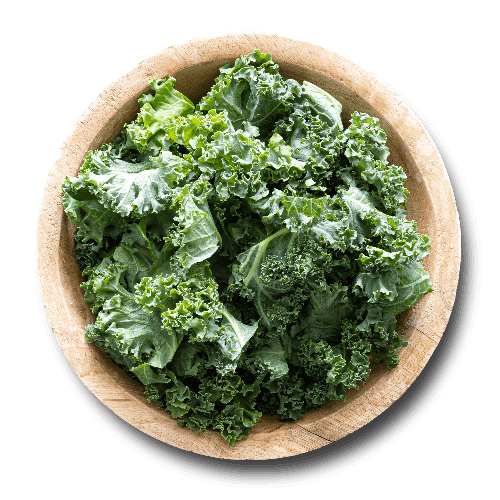
PHYTONUTRIENTS
Phytonutrients
What is it?
Phytonutrients are natural compounds found in plants that provide health benefits such as antioxidant, anti-inflammatory, and immune-boosting effects when consumed.
Why It’s the Good Stuff
Phytonutrients are beneficial because they act as antioxidants, protecting cells from damage caused by free radicals, and may help reduce the risk of chronic diseases like heart disease and cancer. They also have anti-inflammatory properties and can support the immune system, promoting overall health and well-being.
DIGESTIVE SUPPORT
Digestive Support
Digestive health includes the intake of…
Digestive support refers to practices, supplements, or foods that help maintain or improve the functioning of the digestive system & overall digestive health. Digestive health includes in the intake, breakdown, and absorption of food, as well as the elimination of waste. A range of strategies can be effective, such as consuming dietary fibers, probiotics, and digestive enzymes, as well as making lifestyle choices like staying hydrated, eating a balanced diet, and managing stress. The goal of digestive support is to promote healthy digestion, prevent gastrointestinal discomfort, and enhance nutrient absorption.
Why It’s Good Stuff
Digestive support improves digestion and nutrient absorption while promoting regular bowel movements and reducing gastrointestinal discomfort. It enhances the balance of beneficial gut bacteria, which can strengthen immune function and overall gut health. By alleviating digestive issues, it can also contribute to increased energy levels and overall well-being.
PRE - & PROBIOTICS
Pre - & Probiotics
What is it?
Prebiotics are non-digestible fibers that stimulate the growth and activity of beneficial gut bacteria.
Probiotics are live microorganisms, often referred to as "good" bacteria, which provide health benefits when consumed in adequate amounts.
Why It’s the Good Stuff
Prebiotics offer several benefits, including promoting the growth of beneficial gut bacteria, which can improve digestive health and regularity. They also enhance nutrient absorption, support immune function, and may help reduce the risk of certain gastrointestinal disorders and alleviate constipation. Moreover, prebiotics can contribute to overall metabolic health by influencing hunger and blood sugar levels.
Probiotics provide numerous benefits, including improving digestive health by restoring the balance of beneficial gut bacteria, which can alleviate symptoms of conditions like diarrhea. They may also enhance immune function, support mental health through the gut-brain connection, and help reduce inflammation, contributing to overall well-being. Moreover, probiotics can assist in the prevention of certain infections and may improve the effectiveness of certain medications.
STRESS ADAPTOGENS
Stress Adaptogens
What is it?
Stress adaptogens are natural substances derived from plants that help the body adapt to stress and promote overall balance. They are believed to enhance resilience to physical and emotional stressors, supporting the body's ability to maintain homeostasis.
Why It ’s the Good Stuff
Stress adaptogens offer several benefits, including reducing the physiological effects of stress on the body and improving the body's resilience to stressors. They may help enhance mood, boost energy levels, improve mental clarity, and support overall emotional well-being by promoting a balanced response to stress. Additionally, some adaptogens may contribute to better sleep quality and reduced fatigue.
ANTIOXIDANTS
Antioxidants
What is it?
An antioxidant is a compound that helps neutralize free radicals in the body, which are unstable molecules that can cause oxidative damage to cells.
Why It ’s the Good Stuff
Antioxidants provide several benefits, including protecting cells from oxidative stress and reducing inflammation, which can lower the risk of chronic diseases such as heart disease and cancer. They also support immune function, promote healthy aging, and may improve skin health by combating damage from environmental factors like UV radiation and pollution.
NUTRITIONAL ENHANCERS
Bacillus Coagulans
What is it?
A probiotic that produces lactic acid and can survive stomach acid, thanks to its spore-forming life cycle. It is a type of beneficial bacteria that promotes gut health, aids in digestion, improves regularity and constipation, and supports the immune system.
Why It’s the Good Stuff
Bacillus coagulans may support gut health by helping to balance the intestinal microbiota and improving digestive function. It may offer relief from constipation and intestinal gas. Additionally, it has been linked to boosting the immune system and may alleviate symptoms of certain gastrointestinal disorders.
Papain
What is it?
Papain, a protease enzyme from raw papaya, excels in breaking down proteins.
Why it is the Good Stuff
Papain offers several benefits, including aiding digestion by breaking down proteins, which can help improve nutrient absorption. It is also known for its anti-inflammatory properties and may assist in reducing swelling and bruising, making it useful in wound healing and recovery from injuries.
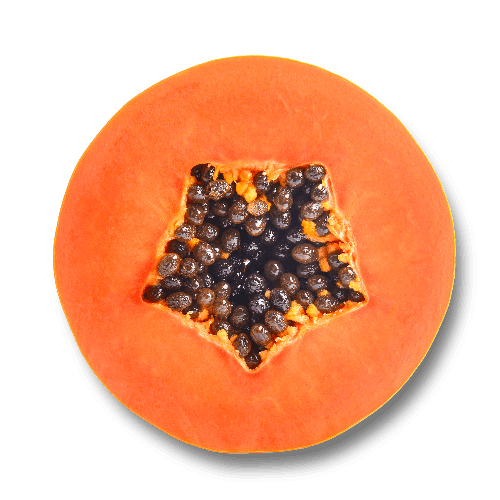
Cocoa
What is it?
Cocoa refers to the seeds (commonly known as cocoa beans) of the Theobroma cacao tree, which are used to produce chocolate and various cocoa products.
Why It’s the Good stuff.
Cocoa is rich in antioxidants, particularly flavonoids, It may also enhance heart health, and brain function, and reduce inflammation. It also enhances mood, supports weight management, and promotes healthy skin when consumed in moderation.
Organic Reb A
What is it?
Organic Reb A, or Rebaudioside A, is a natural sweetener extracted from the leaves of the stevia plant (Stevia rebaudiana).
Why It’s the Good Stuff
Organic Reb A provides several benefits, including being a zero-calorie sweetener, making it a popular choice for those looking to reduce sugar intake and manage weight. It has a low glycemic index, which means it does not significantly impact blood sugar levels, making it suitable for people with diabetes. Additionally, it is derived from a natural source, appealing to consumers seeking healthier and more natural alternatives to artificial sweeteners.
Guar Gum
What is it?
Guar gum is a natural compound from the seeds of the guar plant (Cyamopsis tetragonoloba).
Why It’s the Good Stuff
Guar gum is beneficial for improving digestive health by acting as a soluble fiber, or prebiotic, which can help regulate bowel movements and alleviate constipation. It may also aid in weight management by promoting a feeling of fullness. Additionally, it may help lower cholesterol levels and improve blood sugar control.
Xanthan Gum
What is it?
Xanthan gum is produced by the fermentation of sugars by the bacterium Xanthomonas campestris.
Why It’s the Good Stuff
Xanthan gum may aid in digestive health by acting as a soluble fiber, promoting regularity, and supporting gut health.
Acacia Gum
What is it?
Acacia gum is a natural gum obtained from the sap of Acacia trees.
Why It’s the Good Stuff
Acacia gum offers several benefits, including acting as a soluble fiber that supports digestive health by promoting regularity and aiding gut microbiota. It can support weight management by increasing feelings of fullness. Additionally, it may help regulate blood sugar levels and provide a source of prebiotics, promoting overall gut health.
Organic Tapioca Maltodextrin
What is it ?
Organic tapioca maltodextrin is a carbohydrate derived from tapioca starch. It is considered organic when sourced from organically grown tapioca, making it suitable for natural and health-conscious formulations.
Why It’s the Good Stuff
Organic tapioca maltodextrin offers several benefits, including serving as a source of easily digestible carbohydrates, which can provide a quick energy boost. It is gluten-free, making it a suitable option for individuals with gluten sensitivities or celiac disease. It also has prebiotic qualities.
Natural Flavors
What is it?
Natural flavors are compounds derived from plant sources that are used to enhance the taste and aroma of food products.
Why It’s the Good stuff.
Natural flavors enhance the taste and aroma of food products without the need for artificial additives, making them appealing to consumers seeking more natural ingredients. Additionally, using natural flavors can align with health-conscious or clean-label enthusiasts.









